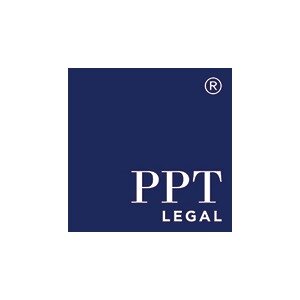Best Conveyancing Lawyers in Athens
Share your needs with us, get contacted by law firms.
Free. Takes 2 min.
Free Guide to Hiring a Real Estate Lawyer
List of the best lawyers in Athens, Greece
About Conveyancing Law in Athens, Greece
Conveyancing is the legal process through which property ownership is transferred from one party to another. In Athens, Greece, conveyancing is governed by national and local laws designed to protect the rights of buyers and sellers, prevent fraud, and ensure the proper recording of ownership changes. The process involves several legal checks, drafting of documents, completion of tax payments, and registration with the local Land Registry or Cadastral Office. Due diligence and adherence to statutory requirements are critical, as real estate transactions in Greece require meticulous attention to legal formalities.
Why You May Need a Lawyer
In Greece, property transactions are highly regulated and involve extensive legal documentation. Common situations where legal help is essential include the purchase or sale of residential or commercial property, inheritance transfers, resolving disputes over property boundaries, dealing with encumbrances or liens, and clarifying ownership status. Lawyers play a crucial role in conducting due diligence, drafting and checking contracts, ensuring proper payments of taxes and fees, representing clients before notaries, and finalizing registrations in the Land Registry or Cadastral Offices. Attempting to navigate these complex procedures without professional assistance can lead to costly mistakes, delays, or even loss of rights to the property.
Local Laws Overview
Athens follows the broader provisions of Greek property law, with some specific local practices. Key regulations include:
- Mandatory due diligence to check for clean title, unpaid taxes, mortgages, or restrictions on the property
- Drafting of a preliminary agreement (if needed) before the final contract
- Execution of the main contract before a Greek notary, who verifies the legality of the transaction
- Compulsory payment of transfer taxes prior to contract execution
- Registration of the transfer deed at the relevant Land Registry or Cadastral Office to formalize ownership
- Compliance with zoning, building codes, and urban planning restrictions applicable in Athens
- Special requirements for foreigners purchasing property, such as tax identification numbers and specific documentation
Failure to adhere to these legal requirements can invalidate the sale or result in legal disputes.
Frequently Asked Questions
What is the first step in the conveyancing process in Athens?
The process usually begins with the seller providing proof of ownership and other key documents, followed by the buyer engaging a lawyer to conduct due diligence on the property’s legal status.
Is it mandatory to have a lawyer for property transactions in Athens?
While recent legal changes mean a lawyer is not formally required for all property purchases, their involvement is highly recommended due to the complexity of Greek property law and potential risks.
What legal checks are performed during conveyancing?
Lawyers check for clear title, outstanding taxes or municipal fees, encumbrances such as mortgages or claims, proper building permits, and compliance with planning regulations.
What documents are typically needed during conveyancing?
Commonly required documents include the seller’s title deed, recent tax and municipal clearance statements, the property’s building permits, and certificates of no debt or encumbrance.
How are taxes handled in property transfers?
Transfer taxes must be paid before the signing of the final contract. The buyer is generally responsible for the transfer tax, which is calculated based on the property’s value.
What is the role of the notary in Athens property transactions?
A notary is a neutral public official who drafts and supervises the signing of the final transfer contract, ensuring all legal requirements, tax payments, and declarations are complete.
How is the property registered in the buyer’s name?
After signing the contract before the notary, the deed is filed with the local Land Registry or Cadastral Office, officially recording the new ownership.
Are there restrictions on foreigners buying property in Athens?
Generally, EU and most non-EU citizens can buy property in Athens, though foreigners must obtain a Greek tax number and may need to declare the source of funds used in the purchase.
How long does the conveyancing process take?
On average, it can take one to three months, depending on the property’s legal status, the speed of obtaining required documents, and the efficiency of the Land Registry or Cadastre.
What are common risks if I do not use a lawyer?
Risks include unpaid taxes or debts transferred with the property, disputes over boundaries or ownership, omitted encumbrances, and improper registration that could lead to loss of rights.
Additional Resources
If you need more information about conveyancing in Athens, consider contacting the following:
- Local Bar Association of Athens - for lawyer referrals
- Hellenic Cadastre - for property registration and cadastral issues
- Hellenic Ministry of Justice - for property law and legal procedures
- Chamber of Notaries of Greece - for queries about notarial services
- Municipal Office of Athens - for property taxes and urban planning
Next Steps
If you are planning to buy, sell, or otherwise transfer property in Athens, start by consulting with a qualified lawyer experienced in Greek conveyancing law. Gather all necessary property documents, verify your tax status, and request an initial legal check on the property. Your lawyer can guide you through due diligence, contract drafting, tax payment, and registration. Acting proactively and securing professional legal advice is the best way to ensure a smooth and lawful property transaction in Athens.
Lawzana helps you find the best lawyers and law firms in Athens through a curated and pre-screened list of qualified legal professionals. Our platform offers rankings and detailed profiles of attorneys and law firms, allowing you to compare based on practice areas, including Conveyancing, experience, and client feedback.
Each profile includes a description of the firm's areas of practice, client reviews, team members and partners, year of establishment, spoken languages, office locations, contact information, social media presence, and any published articles or resources. Most firms on our platform speak English and are experienced in both local and international legal matters.
Get a quote from top-rated law firms in Athens, Greece — quickly, securely, and without unnecessary hassle.
Disclaimer:
The information provided on this page is for general informational purposes only and does not constitute legal advice. While we strive to ensure the accuracy and relevance of the content, legal information may change over time, and interpretations of the law can vary. You should always consult with a qualified legal professional for advice specific to your situation.
We disclaim all liability for actions taken or not taken based on the content of this page. If you believe any information is incorrect or outdated, please contact us, and we will review and update it where appropriate.















